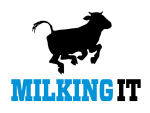OCD chief executive Steve Koekemoer says the company will continue to closely monitor market activities over the coming weeks to substantiate any trend.
“We are in our lower volume period and will keep our focus on the larger peak volume months as we head into the season,” he told farmer suppliers.
“The fundamentals suggest that the market should be well balanced, and prices should remain stable at current levels.”
The Global Dairy Trade (GDT) auction on July 8 saw the price index jump 8.3%. Whole milk powder (WMP) prices rose 14%.
Koekemoer says while he was expecting a positive result, the magnitude was ‘impressive’.
“With China, domestic WMP prices having increased recently and customers wanting to fill their pipeline. It seems many have taken a position to stock up early,” he says.
Meanwhile, at its recent round of farmer meetings, Koekemoer says the key topic has been the recovery of dairy prices post-Covid.
“This is understandable and obviously an important focus for us too.”
OCD has adjusted both its September and November settlements up by another 10c – as it gains more confidence in the new season’s
outlook.
Koekemoer notes that the foodservice channels globally are getting “into a more normalised operating mode”.
“Our shipments, which were slightly delayed over the Covid lockdown period due to international banking delays, staff shortages overseas and other disruptions have returned to normal,” he explains.
“With dairy being a great source of nutrition, we have found global demand to be very stable.”
OCD says it is looking at another record-breaking season. It expects to process 1.91 billion litres of milk from 1000 suppliers.


















